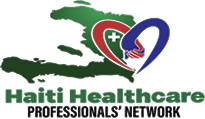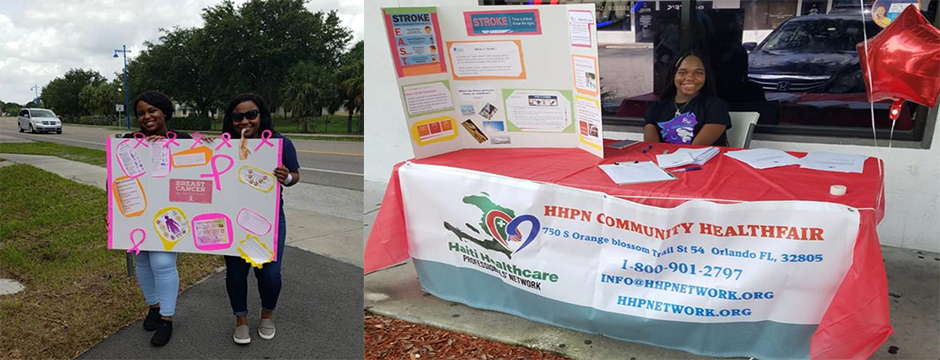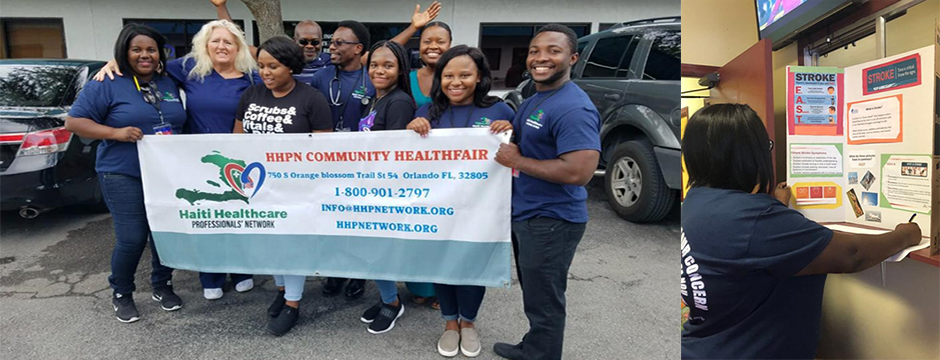First-aid Kits
More people would still be alive in Haiti’s rural areas if they knew some emergency treatment techniques since they live so far away from a health clinic. For more than 40% of the Haitian population, giving first aid is about dealing with minor injuries and preventing them from getting worse. Since there are no institutions in Haiti that customarily provide first-aid training, it would require a lot of resources to begin training thousands of people in the rural areas where villages spread over hills and mountains with two to several miles separated them.
Due to its limited resources and willingness to make a difference in the lives of Haitians living in remote communities, HHPN aims to provide first-aid training to two people (female and male) per community or village that we termed as first-aid responders. Without ambulatory services in rural Haiti, HHPN will gradually provide the first-aid responders with additional training and scholarship so they can serve as certified nurse aid. Moreover, two first-aid responders will turn into trainers to pass on their knowledge onto members in their respective communities and beyond. Typically, these rural communities have a couple of hundred to 1000 residents.
What is the job of the first-aid responders?
Educate community residents on infectious diseases
In addition, these frst-aid responders Help community members understand that they should not wait until they’re severely ill to go to a health clinic; they need to see a health professional as soon they become ill; train community members on first-aid intervention; and establish regular contact with the nearest health clinics and hospitals in the region.
What do the rural first-aid responders need?
The Red Cross recommends what all first aid kits for a family of four should include. Depending on the number of families in each community, we can multiply them by the number items recommended by the Red cross. The first-aid kits include:
Scissors
About HHPNetwork
Haiti Health Professional's Networks aims to assist low-income communities in the US and Haiti in their quest for access to heath care. In the US we prioritize Heal Fair while our main focus in Haiti is to provide its rural communities with access to basic health care through medical mission trips on a regular basis.
In both Haiti and the US, the primary focus of our organization is preventative healthcare education. We believe it is the best approach to improving community health is in a sustaible manner.
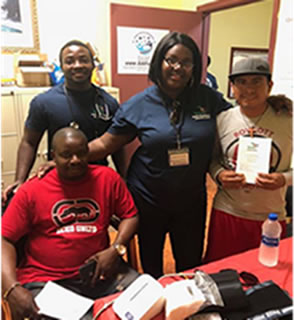
A patient at the health fair in Immokalee, Florida (May,2018)
More than 40% of Haitians live in rural communities lawithout running water and electricity. Most of these communities don't even have access to the most basic preventative medicine and health care.In our medical missions to Haiti, we target these rural communities who desperately need medical attention.
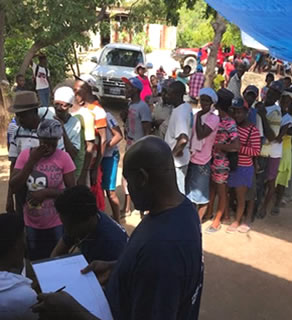
Patients from various communities in Chaine-des-Matheux, Ouest department, Haiti (November, ,2018)

